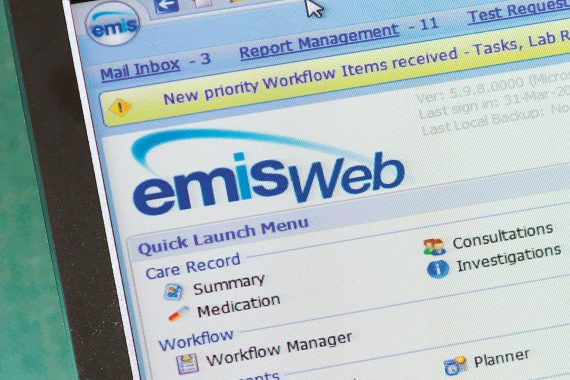GPs not using available cancer risk tools, survey suggests

Many GPs are not making use of freely available cancer risk assessment tools to spot urgent cases, a study suggests.
Researchers found that the tools, developed to help GPs refer patients with suspected cancer under two week rules, were only accessible in around a third of practices.
Out of those practices, only half were likely to use them, the survey found.
The researchers from the University of Exeter said they did the survey of 476 GPs in 277 general practices because despite the cancer risk tools – Qcancer and RATs – being available as part of many GP systems for years, no one had looked at whether they were actually being used.
Responses to the survey also showed only 19% of practices had activated or downloaded electronic tools on to their IT system, while others used a paper form of the risk assessment.
GPs with Vision or EMIS Web IT systems should have electronic access to the tools if they choose to use them and they are soon to be made available for TPP SystmOne, the researchers pointed out.
Figures published in April showed that last year GPs referred more patients under the two-week rules than ever before.
Writing in the British Journal of General Practice, the researchers have called for a new and sustained training drive for GPs, so that the tools are used habitually, and effectively.
Lead author, Dr Sarah Price, said: ‘The tools are potentially a useful resource for GPs, helping them to assess which of their patients should be sent for testing because they might be harbouring an undiagnosed cancer.
‘We need to carry out further research and work with GPs to find out how the tools can be integrated into the often time-pressured consultations between GPs and their patients.’
She added that the survey results suggested a lack of awareness of the tools and that GPs wrongly thought they were not available on their systems.
Co-author, Professor Willie Hamilton, who helped develop the national guidelines on referral for suspected cancer symptoms added: ‘We know that some of the UK’s poor cancer outcomes relate to delays in diagnosis.
‘The study shows that there is much scope for cancer tools to be used more.’
The team are launching a major trial to boost use of the risk tools in 530 practices later this year.
He added: ‘We know GPs are busy, and can’t take on every opportunity that is offered.
‘In one way the findings are positive: that the tools are being used by some GPs. It does seem clear that there is room for many more to do so.’
Dr Richard Roope, cancer lead for the Royal College of GPs, said: ‘We know that so many family doctors are working with outdated technology – which means even if they have access to incredibly effective assessment tools – the technology is not there to allow them to be used to their full potential.
‘It is also vital that primary care teams are fully staffed and resourced with both clinicians and better access to the right diagnostic tools, but also the appropriate training and confidence to use them so that we are not in a position where potentially life-saving systems are an under-used resource in our healthcare system.’
Earlier this month, research found that 28% of GPs said they didn’t have the necessary tools to detect pancreatic cancer at an early enough stage to treat.
Visit Pulse Reference for details on 140 symptoms, including easily searchable symptoms and categories, offering you a free platform to check symptoms and receive potential diagnoses during consultations.











